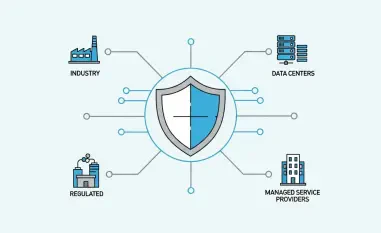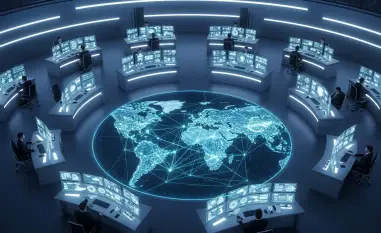The Iran-Israel conflict, traditionally characterized by overt military exchanges, has increasingly shifted into the cyber realm, transforming both the nature and scope of hostilities. Operation Rising Lion, a notable cyber initiative by Israel aimed at disrupting Iran’s nuclear capabilities, underscores the severity of these digital engagements and their broader consequences. As cyber warfare plays a pivotal role within geopolitical confrontations, the complexities emerging from digital assaults demand closer examination due to their profound impact on regional security and international diplomacy.
Unraveling the Historical Context
Historically, the Iran-Israel conflict has been woven with diplomatic tensions, military engagements, and ideological differences that have spanned decades. As open warfare gives way to stealthier, digital-based confrontations, understanding the cyber warfare dimension becomes increasingly critical. The cyber battlefield provides a less visible yet highly impactful stage where both state and non-state actors challenge traditional military paradigms. Cyber warfare’s expansion in this conflict highlights the urgency of reevaluating global security frameworks, and its implications reverberate through diplomatic interactions and international norms.
Dynamics of Cyber Warfare Within the Conflict
Scrutinizing Methodology
In assessing the cyber warfare dimension of the Iran-Israel conflict, sophisticated analytical tools and methodologies have been employed to track cyber activities and threats. Various intelligence organizations utilize network traffic analysis, threat intelligence platforms, and digital forensics to trace attacks, profile threat actors, and evaluate their tactics. These insights are crucial to forming a comprehensive understanding of the methods and motivations driving cyber operations within this geopolitical conflict.
Revealing Findings
The investigations have uncovered a landscape rife with cyber strategies involving hacktivists and state actors employing distinct attack methods. Israel has faced consistent threats in the form of distributed denial-of-service attacks targeting its infrastructures, accounting for a significant portion of global hacktivist assaults. Concurrently, Iran has adopted a defensive posture, implementing cybersecurity measures and restricting digital access domestically to stave off penetrations purportedly orchestrated by Israeli entities. These findings reflect the intricate interplay of offense and defense in an increasingly interconnected digital world.
Gauging Implications
The implications of cyber warfare in the Iran-Israel conflict extend beyond immediate impacts, reshaping regional stability and influencing global security practices. As states navigate cyber offensives, the potential for broader disruptions increases, with non-state actors gaining a foothold in international power dynamics. This evolution calls for recalibrated security strategies, driving nations to bolster cyber defense mechanisms, enhance threat intelligence collaborations, and forge international alliances aimed at mitigating cyber risks.
Reflection and Road Ahead
Insights and Reflections
Reflecting upon the study’s outcomes, it becomes evident that while considerable progress has been made in understanding cyber warfare dynamics, challenges remain. Threat actor anonymity, evolving tactics, and the rapid technological changes pose obstacles to attributing accurate intrusions and developing effective countermeasures. Despite these hurdles, cross-domain collaborations have facilitated significant advancements in threat detection and response strategies.
Charting Future Directions
Future research should delve deeper into the motivations underlying hacktivist groups’ involvement in geopolitical cyber conflicts, exploring the nuances of their global networks and alliances. Unanswered questions regarding the efficacy of international cybersecurity laws and the role of global governance in mitigating cyber threats warrant further exploration. Embracing an interdisciplinary approach will be key to unraveling the complex web of digital confrontations in geopolitics.
Concluding Thoughts
The cyber warfare between Iran and Israel has encapsulated the shift from traditional military engagements to complex digital terrains, redefining the contours of modern conflict. The multilayered cyber strategies employed have heightened the stakes for global security and diplomatic relations, urging nations to adapt toward a cybersecurity-forward mindset. Building resilient infrastructures and fostering international collaboration will be crucial in responding to cyber threats of this nature, ensuring both regional stability and the progression of global peace initiatives.













